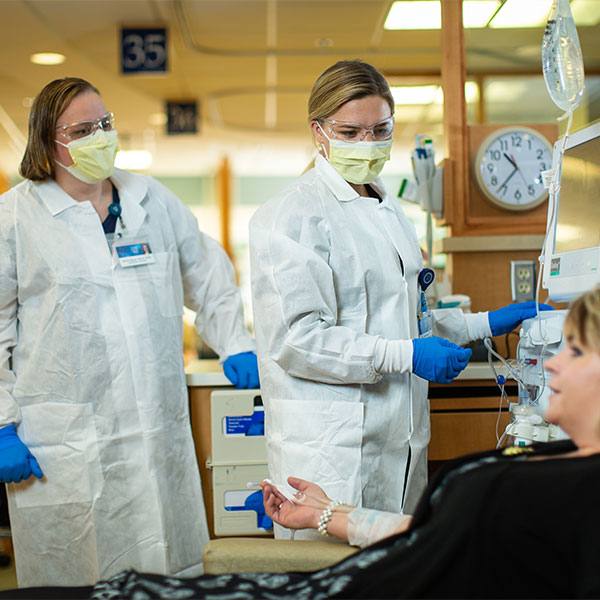-
Biotherapeutics
Science Saturday: Advancing cell-based regenerative therapy for heart failure
February is American Heart Month, a time to highlight innovative research that seeks to advance cellular therapy as a new option for restoring heart health. One of the latest discoveries in the Center for Regenerative Medicine and Mayo Clinic Van Cleve Cardiac Regenerative Medicine Program established a way to engineer stem cells that activate regenerative mechanisms for healing. This research uses a genetic material called messenger RNA to readily manufacture cardiac repair competent stem cells.
This research was conducted by Mark Li, an M.D./Ph.D. student in Mayo Clinic Graduate School of Biomedical Sciences and Mayo Clinic Alix School of Medicine, with the support of a collaborative team. Li's doctoral thesis builds on two decades of research in the cardiac regeneration laboratories of Atta Behfar, M.D., Ph.D., and Andre Terzic, M.D., Ph.D. The results of Li's thesis are published in Stem Cells Translational Medicine.
"The safety and efficacy of stem cell therapy have been documented in advanced clinical trials, but the method of cell manufacturing had remained cost-prohibitive, limiting large-scale adoption in clinical practice," says Li. "My thesis developed an alternative method to engineer stem cells with high regenerative potential aimed at offering affordable and accessible solutions for patient care."
Finding a way to restore tissue damaged from a heart attack is one of the great challenges of medical science. Diseased heart tissue has a limited ability to regenerate, and the long-term prognosis for healing remains poor. Consequently, heart disease is a leading killer. Approximately 655,000 people die of cardiovascular disease every year in the U.S., according to the Centers for Disease Control and Prevention.
Cardiopoietic stem cells, discovered at Mayo Clinic, offer hope that it may be possible to restore the form and function of diseased heart tissue. Cardiopoietic cells are derived from adult stem cell sources and programmed with a growth factors-based protein cocktail to enhance their heart healing aptitude. Research from a Mayo co-led multinational study ― the largest regenerative medicine clinical trial to date for heart failure ― found cardiopoietic stem cells are safe and benefit patients with advanced heart failure and left ventricular enlargement.
The innovation of stem cells to achieve improved clinical outcome, previously implemented using a demanding protocol, has been streamlined by Li and his colleagues in a protein‐free manner by leveraging RNA‐based single gene delivery.
"A new way of engineering a cardio reparative biotherapeutic for heart disease is poised to expand the regenerative toolkit," says Li. "In this study, single gene engineering yielded therapeutically competent cells fit for translational validation."
After discovering and establishing the science behind the healing potential of cardiopoietic stem cells, Mayo Clinic researchers have been seeking to improve the manufacturing process to meet strict quality control standards.
"This scalable platform has the potential to ease production and facilitate the advancement of regenerative stem cell therapy," says Dr. Behfar, deputy director of translation for the Center for Regenerative Medicine and senior author on the study. "Beyond the potential for cost efficiencies gained, consolidating a previously complex biomanufacturing process into a single genetic trigger ensures that the engineered stem cell product will feature enhanced purity, consistency and potency."
When tested in preclinical models, adipose-derived engineered stem cells preserved cardiac function and increased survival rates after a heart attack. Additional laboratory research will be needed before cardiopoietic stem cells derived from adipose tissue can advance to testing in human clinical trials.
###










